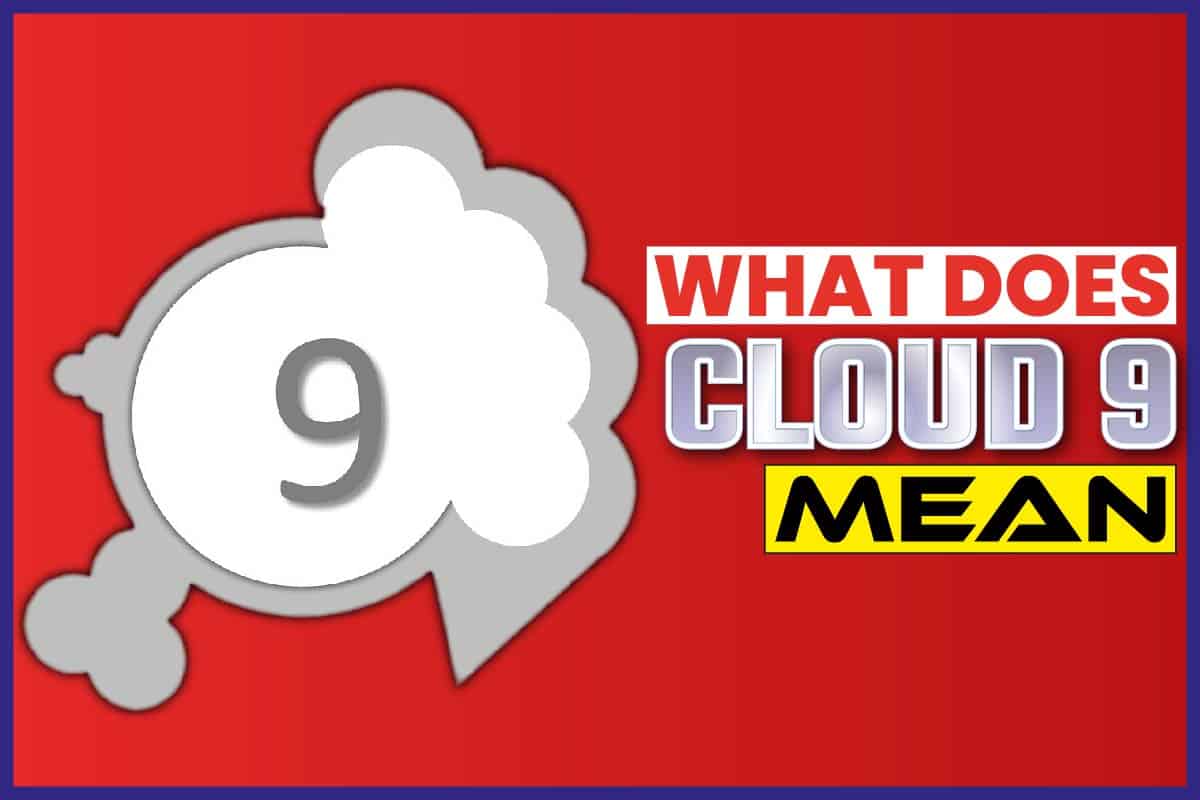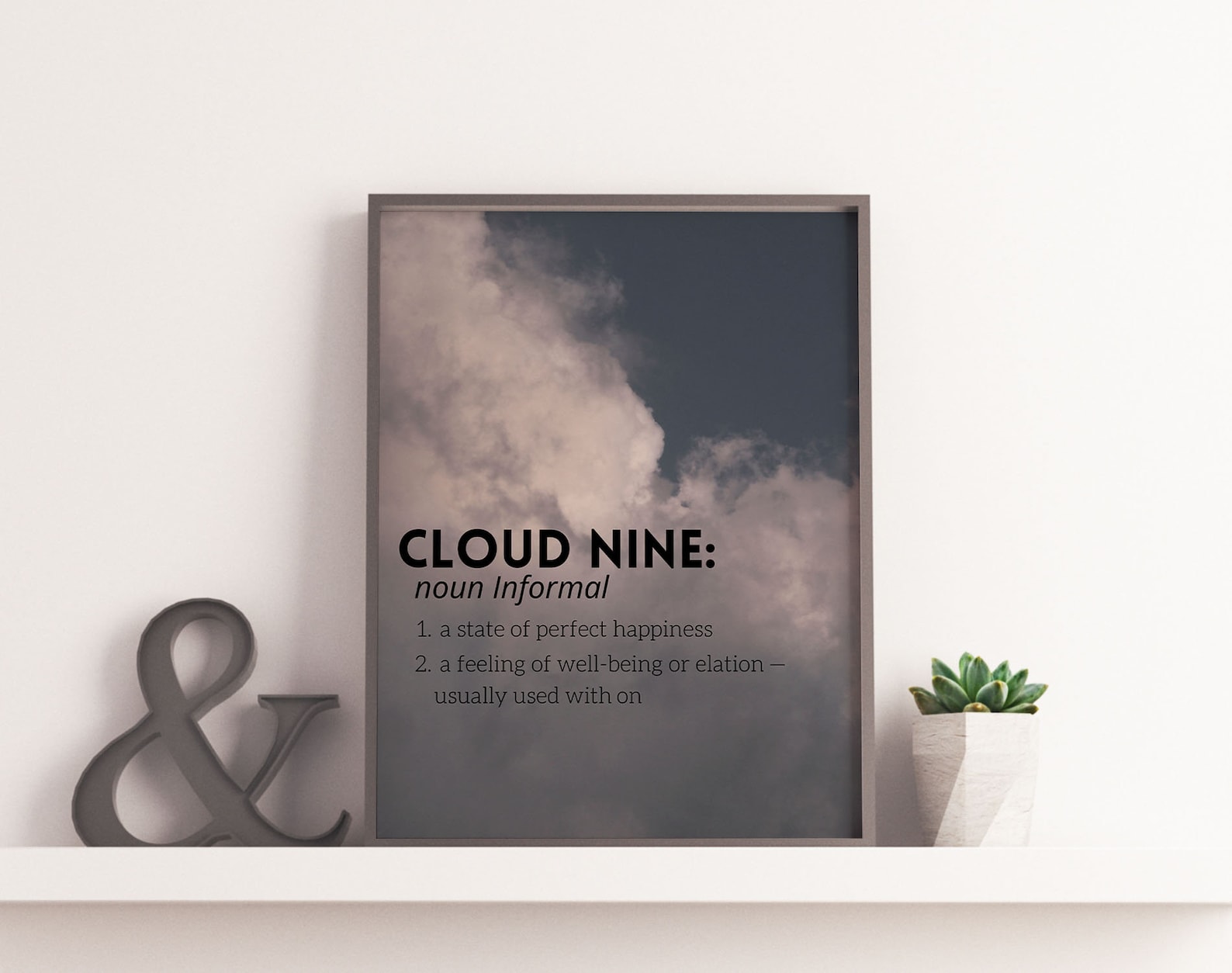

By that simple device Garbo, momentarily stunned, got off her perch somewhere on cloud eight and became one of the people.įinally, on 6 June 1946 the comic strip Dixie Dugan uses on cloud nine to describe a lovestruck woman:

#WAS ON CLOUD NINE MEANING FULL#
Within a few minutes Goulding was at work on her hair, with his mouth full of hairpins.
#WAS ON CLOUD NINE MEANING MOVIE#
On 12 November 1944, gossip columnist Hedda Hopper uses on cloud eight to refer to the divinity that is Greta Garbo when relaying a tale about the actress during the filming of the 1927 silent movie Love, an adaptation of Anna Karenina: It is about that unending warfare between universities and college football. Albin Pollock’s 1935 glossary of criminal slang, The Underworld Speaks, records:Ĭloud eight, befuddled on account of drinking too much liquor.Īnd two years later, on 15 August 1937, sportswriter Harry Borba subtracts one and connects the resulting on cloud seven with the older sense of being left to fate or the gods:īut the subject of harangue-and we’re sure they argue up there on cloud seven-is not about the futility of war to end all wars.

The addition of a number to the cloud occurs in American slang in the 1930s and was likely influenced by or a play on seventh heaven. What the devil would you have of your wife, my dear L-? You would be loved above all earthly considerations honour, duty, virtue, and religion inclusive, would you? and you would have a wife with her head in the clouds, would you? I wish you were married to one of the all-for-love heroines, who would treat you with bowl and dagger every day of your life. From Maria Edgeworth’s 1806 novel Leonora: However, for the present the House of Lancaster hath the Crown intailed, and the Inheritance is left in the Clouds to be revealed in due time.Īnd by the nineteenth century, to have one’s head in the clouds is to be unconcerned with practical, down-to-earth matters, a phrase that is still very much in use. For example, Nathaniel Bacon, writing in 1651 about the reign of Henry IV (1399–1413): In the seventeenth century, the phrase in the clouds could be used to refer to things that were either unknown or mystical, that is things known only to God in the heavens. The phrase as we know it is relatively recent, appearing in 1930s American slang, but it has predecessors going back the seventeenth century. The nine really doesn’t stand for anything (cf. Many people speculate on the origin of the phrase, wondering what the significance of the number nine might be, but the origin and underlying metaphor is rather straightforward, and the use of the number nine is arbitrary. To be on cloud nine is to be in euphoric state.


 0 kommentar(er)
0 kommentar(er)
